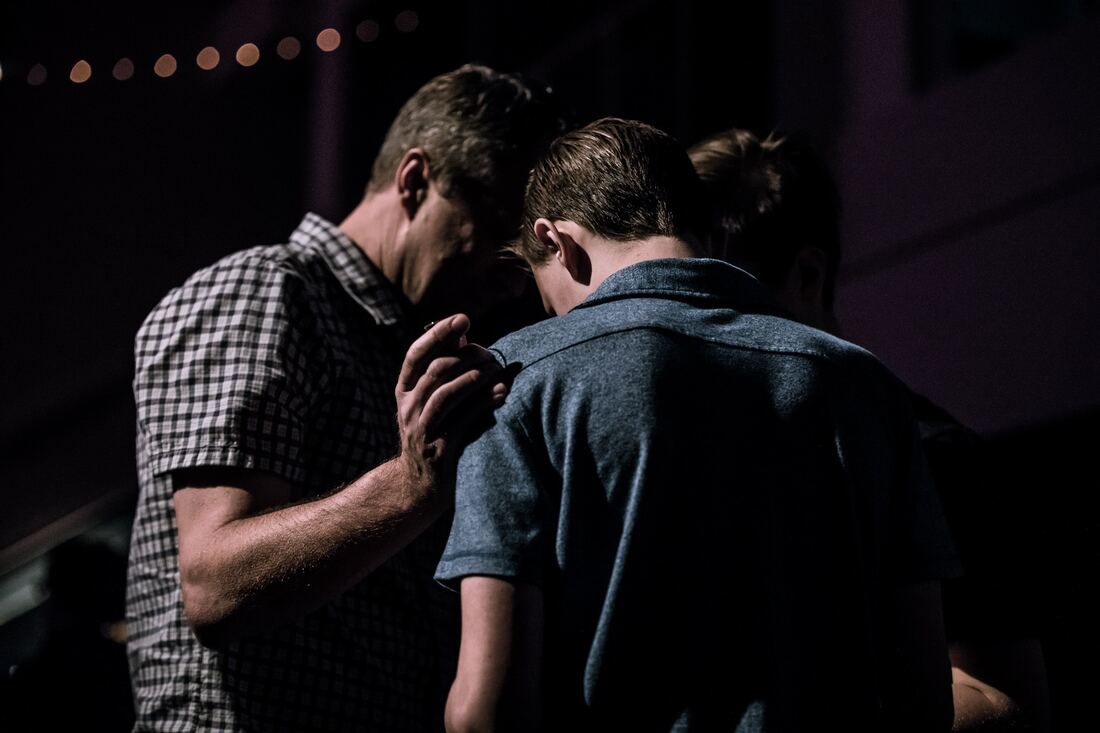The Power of Blessing: An Ancient Approach to a Culture of Belonging
By Jill Fisk MATM
In Catholic health care, the integration of mission, vision and values across the continuum of care is our distinction. It is what creates our culture and sets us apart for both our staff and patients. The manner in which we look after patients and serve together steadies our commitments and differentiates the care we provide. Recent years have highlighted the importance of belonging in workplaces and communities. (1) Diversity, equity and inclusion efforts have expanded, as the positive effects of belonging on well-being continue to gain traction. The human need to belong is universal, and the workplace is no exception, heightening its relevance to individual well-being and enhancing patient care.
As a Catholic health ministry called by CHA's new vision statement to "empower bold change to elevate human flourishing," we must explore strategies to foster belonging. What will strengthen efforts toward belonging? And how might we uplift our core beliefs of belonging that plunge into the essence of this profound human need? I propose there is a gift at the heart of belonging that lies within our faith tradition. Illuminating this special grace will allow us to achieve our radical vision with coworkers and, more importantly, our patients and the communities we serve.
As a Catholic health ministry called by CHA's new vision statement to "empower bold change to elevate human flourishing," we must explore strategies to foster belonging. What will strengthen efforts toward belonging? And how might we uplift our core beliefs of belonging that plunge into the essence of this profound human need? I propose there is a gift at the heart of belonging that lies within our faith tradition. Illuminating this special grace will allow us to achieve our radical vision with coworkers and, more importantly, our patients and the communities we serve.
BLESSING IN FAITH TRADITION
The Christian faith tradition is rooted in blessing. From the dawn of time, God's pattern around this emerged: The blessed bestows blessings upon others so that they, too, may do the same for others. This chain of blessing is replete throughout sacred scripture. As Genesis begins, God creates living beings, blesses them and gives them instructions on how to continue as the blessed: "Be fertile, multiply … fill the earth … ." (Genesis 1:22, 28) The narrative continues as God calls Abram and establishes a divine covenant with him, bestowing him with the name Abraham and the promise of an everlasting covenant with him and his descendants, a blessing of radical proportions. (Genesis 17:1-9)
While blessing in the Hebrew text denotes lineage and land, a deeper human aspect is evident. This thread is visible in Isaac and Esau (Genesis 27:1-40), in Jacob (Genesis 32:22-30), in Moses and Aaron (Numbers 6:22-27) and in Jabez (1 Chronicles 4:10). Look closely. It seems scripture illuminates soul-deep expressions of humanity to receive blessing, common displays that people long to be assured of their worth and to be seen and known by a trusted figure — ultimately, God — for a divine affirmation. Biblical scholar Ellen Davis defines blessing as "fundamentally an act of acknowledging the essential goodness of the other's being. It is a commitment of one's will to the flourishing of the other." (2) Psychological theorists name this connection belonging; we call it blessing.
The Christian faith tradition is rooted in blessing. From the dawn of time, God's pattern around this emerged: The blessed bestows blessings upon others so that they, too, may do the same for others. This chain of blessing is replete throughout sacred scripture. As Genesis begins, God creates living beings, blesses them and gives them instructions on how to continue as the blessed: "Be fertile, multiply … fill the earth … ." (Genesis 1:22, 28) The narrative continues as God calls Abram and establishes a divine covenant with him, bestowing him with the name Abraham and the promise of an everlasting covenant with him and his descendants, a blessing of radical proportions. (Genesis 17:1-9)
While blessing in the Hebrew text denotes lineage and land, a deeper human aspect is evident. This thread is visible in Isaac and Esau (Genesis 27:1-40), in Jacob (Genesis 32:22-30), in Moses and Aaron (Numbers 6:22-27) and in Jabez (1 Chronicles 4:10). Look closely. It seems scripture illuminates soul-deep expressions of humanity to receive blessing, common displays that people long to be assured of their worth and to be seen and known by a trusted figure — ultimately, God — for a divine affirmation. Biblical scholar Ellen Davis defines blessing as "fundamentally an act of acknowledging the essential goodness of the other's being. It is a commitment of one's will to the flourishing of the other." (2) Psychological theorists name this connection belonging; we call it blessing.
BLESSING IN SACRED MOMENTS
In his book To Bless the Space Between Us, John O'Donohue portrays the pervasive sense of blessing that enveloped daily life in Ireland. This sentiment was captured in the practice of etching crosses onto bread dough, infusing basic nourishment with a spiritual meaning. On St. Brigid's Eve, affixing crosses to home ceilings symbolized a prayerful shield of protection.
Additionally, the observance of Candlemas — which commemorates the presentation of Jesus at the temple — on February 2 held a profound role in Irish culture. During this commemoration, residents offered their wax candles to the priest. These candles, once consecrated, burned throughout the year, serving as tangible emblems of grace in times of adversity. This practice fused the sacred and the ordinary, as the flickering flames offered a constant reminder of blessing. (3)
Perhaps this culture of blessing influenced the origin of the Blessing of the Hands. Attributed to Florence Nightingale in the 1800s, this ritual still reminds caregivers of their call to offer compassion to those they serve. I distinctly recall my first Blessing of the Hands as a graduate intern at St. Louis-based Mercy. As the fragrant oil was imprinted upon each new leader's hands, accompanied by a whispered blessing, I found myself captivated by the sacramentality in the vocational commissioning and felt the sense of divine affirmation among all in the room.
This sentiment personally resonates in profound ways. In 2016, I facilitated a workshop on Sabbath practice for ministry leaders, inviting them to embrace regular rhythms of rest and relationship as an act of worship. Those in the room asked if they could pray over me before the presentation began. The simple photograph of that moment now rests on my office bookshelf as a touchstone of my call to serve and God's blessing over me. O'Donohue's writing suggests an "infusion of sacred power" in objects like this photograph, transforming them to be "the power of sacred blessing into the future … a live sanctuary from which the divine light and protection proceed … penetrated and benevolently permeated by the breath of blessing." (4)
BLESSED TO BE A BLESSING
Moments of blessing transport us to a place of being known and affirmed by the One in whom our desires begin and find completion. This is the great gift of faith upon psychological constructs of belonging. When we look to our faith tradition and the meaning-making rituals that shape our own call, we can find a viable strategy for belonging.
The first step to engage in blessing is to experience it. Are there sacred moments you have previously experienced upon which you can reflect — in your life or community of faith? Is there, or might there be, an opportunity to receive a ritual of blessing within your facility or system? If so, make it a practice to relive and remember God's affirmation on your life.
Second, surround yourself with reminders of this blessing. Is there a touchstone that symbolizes your life and work as a blessing for others that you can place in a space you frequent, possibly your office, kitchen or car? Set yourself up to remember who and of whom you are.
Finally, establish rhythms of blessing that return you to blessing day after day:
As writer and theologian Henri Nouwen said, "To give someone a blessing is the most significant affirmation we can offer. It is more than a word of praise or appreciation; it is more than pointing out someone's talents or good deeds; it is more than putting someone in the light. To give a blessing is to affirm, to say 'yes' to a person's Belovedness." (5) We are blessed to be a blessing. This is our strategy for belonging.
Moments of blessing transport us to a place of being known and affirmed by the One in whom our desires begin and find completion. This is the great gift of faith upon psychological constructs of belonging. When we look to our faith tradition and the meaning-making rituals that shape our own call, we can find a viable strategy for belonging.
The first step to engage in blessing is to experience it. Are there sacred moments you have previously experienced upon which you can reflect — in your life or community of faith? Is there, or might there be, an opportunity to receive a ritual of blessing within your facility or system? If so, make it a practice to relive and remember God's affirmation on your life.
Second, surround yourself with reminders of this blessing. Is there a touchstone that symbolizes your life and work as a blessing for others that you can place in a space you frequent, possibly your office, kitchen or car? Set yourself up to remember who and of whom you are.
Finally, establish rhythms of blessing that return you to blessing day after day:
- Count the blessings that emerge in everyday moments of grace.
- Slow down to savor the blessing of others. Be truly present. Set aside agendas and distractions.
- Listen with the ear of blessing. Let its power be transformative.
- Linger over blessings found in sacred text and wisdom literature and meditate upon them throughout the day. Repeat them word by word, line by line. Let these words of blessing inform your life and all those you encounter.
As writer and theologian Henri Nouwen said, "To give someone a blessing is the most significant affirmation we can offer. It is more than a word of praise or appreciation; it is more than pointing out someone's talents or good deeds; it is more than putting someone in the light. To give a blessing is to affirm, to say 'yes' to a person's Belovedness." (5) We are blessed to be a blessing. This is our strategy for belonging.
NOTES
1. William Arruda, "How to Cultivate A Culture of Belonging — and Why It's the Ultimate Competitive Edge," Forbes, March 1, 2023, https://www.forbes.com/sites/williamarruda/2023/03/01/how-to-cultivate-a-culture-of-belonging-and-why-its-the-ultimate-competitive-edge/?sh=462f6b8b5d37.
2. Eileen F. Davis, Opening Israel's Scripture (New York: Oxford University Press, 2019).
3. John O'Donohue, To Bless the Space Between Us: A Book of Blessings (New York: Doubleday Press, 2008).
4. O'Donohue, To Bless the Space Between Us.
5. Henri Nouwen, Life of the Beloved: Spiritual Living in a Secular World (New York: The Crossroad Publishing Company, 1992).
Jill Fisk, MATM, is director, mission services, for the Catholic Health Association, St. Louis.
This article originally appeared in Catholic Health Association of the United States in Autumn 2023.
Images from Unsplash and Pixabay. Used under license/with permission.




